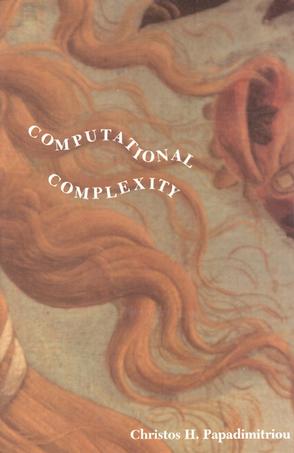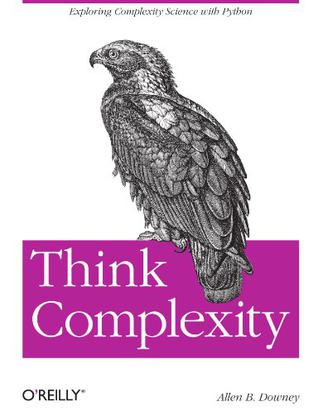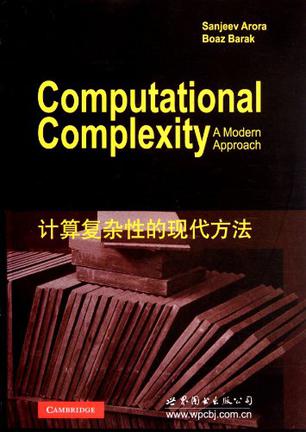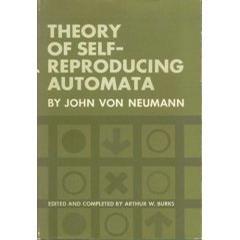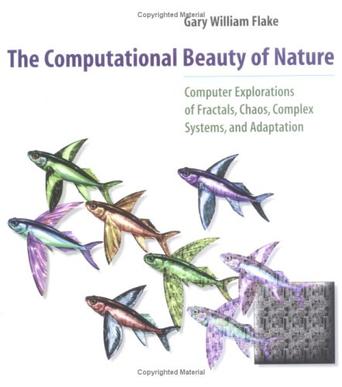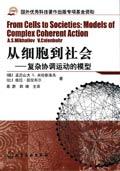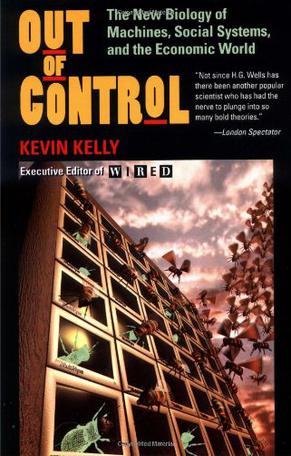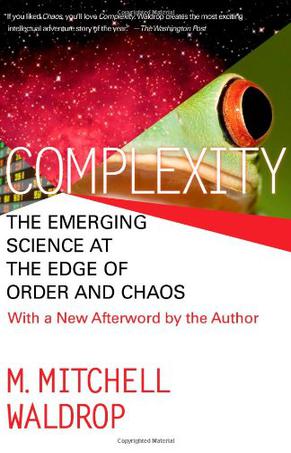欢迎来到相识电子书!
标签:complexity
-
Computational Complexity
This text offers a comprehensive and accessible treatment of the theory of algorithms and complexity - the elegant body of concepts and methods developed by computer scientists over the past 30 years for studying the performance and limitations of computer algorithms. Among topics covered are: reductions and NP-completeness, cryptography and protocols, randomized algorithms, and approximability of optimization problems, circuit complexity, the "structural" aspects of the P=NP question, parallel computation, the polynomial hierarchy, and many others. Several sophisticated and recent results are presented in a rather simple way, while many more are developed in the form of extensive notes, problems, and hints. The book is surprisingly self-contained, in that it develops all necessary mathematical prerequisites from such diverse fields as computability, logic, number theory, combinatorics and probability. -
Think Complexity
Dive into Python's advanced possibilities, including algorithm analysis, graphs, scale-free networks, and cellular automata with this in-depth, hands-on guide. Whether you're an intermediate-level Python programmer, or a student of computational modeling, you'll examine data structures, complexity science, and other fascinating topics through a series of exercises, easy-to-understand explanations, and case studies. Think Complexity presents features that make Python such a simple and powerful language. Author Allen Downey provides code to help you get started, along with a solution for each exercise. With this book, you will: Work with graphs and graph algorithms, NumPy arrays and SciPy methods, basic signal processing and Fast Fourier Transform, and hash tables. Discover complexity science, the field that studies abstract models of complex physical systems, including power laws, fractals and pink noise, and Turing machines. Explore the philosophy of science through the models and results in this book about the nature of scientific laws, theory choice, and realism and instrumentalism, and more. -
计算复杂性的现代方法
计算复杂性的现代方法,ISBN:9787510042867,作者:(美)阿罗拉 著 -
Theory of Self-Reproducing Automata
该书是一本von Neumann关于“自复制自动机”的研究论文集,由von Neumann在密西根大学的助手Arthur Burk(大名鼎鼎的John Holland的博士导师)整理编辑。 这本书的意义不仅仅在于它实际上开创了“人工生命”、“细胞自动机”等多门复杂性研究的分支。更重要的是,该书将“自我复制”作为生命的一个本质特征加以数学建模的研究。而这套理论和可计算性理论、歌德尔定理以及热力学深深地联系到了一起。这一点也许对于我们研究复杂系统的人来说仍具有重要的意义。 -
The Computational Beauty of Nature
"Simulation," writes Gary Flake in his preface, "becomes a form of experimentation in a universe of theories. The primary purpose of this book is to celebrate this fact."In this book, Gary William Flake develops in depth the simple idea that recurrent rules can produce rich and complicated behaviors. Distinguishing "agents" (e.g., molecules, cells, animals, and species) from their interactions (e.g., chemical reactions, immune system responses, sexual reproduction, and evolution), Flake argues that it is the computational properties of interactions that account for much of what we think of as "beautiful" and "interesting." From this basic thesis, Flake explores what he considers to be today's four most interesting computational topics: fractals, chaos, complex systems, and adaptation.Each of the book's parts can be read independently, enabling even the casual reader to understand and work with the basic equations and programs. Yet the parts are bound together by the theme of the computer as a laboratory and a metaphor for understanding the universe. The inspired reader will experiment further with the ideas presented to create fractal landscapes, chaotic systems, artificial life forms, genetic algorithms, and artificial neural networks. -
Rules of Play
As pop culture, games are as important as film or television--but game design has yet to develop a theoretical framework or critical vocabulary. In Rules of Play Katie Salen and Eric Zimmerman present a much-needed primer for this emerging field. They offer a unified model for looking at all kinds of games, from board games and sports to computer and video games. As active participants in game culture, the authors have written Rules of Play as a catalyst for innovation, filled with new concepts, strategies, and methodologies for creating and understanding games..Building an aesthetics of interactive systems, Salen and Zimmerman define core concepts like "play," "design," and "interactivity." They look at games through a series of eighteen "game design schemas," or conceptual frameworks, including games as systems of emergence and information, as contexts for social play, as a storytelling medium, and as sites of cultural resistance.Written for game scholars, game developers, and interactive designers, Rules of Play is a textbook, reference book, and theoretical guide. It is the first comprehensive attempt to establish a solid theoretical framework for the emerging discipline of game design. -
涌现
作者比较了显示涌现现象的不同系统和模型,展现了它们之间共同的规则或规律。作者向读者阐明:涌现的理论能够预言许多复杂的行为,同时也给予我们关于生命、智慧和组织的很多启示。 -
从细胞到社会
本书是复杂性科学方面一本引人入胜的介绍性读物。作者由简到繁地介绍目前复杂性研究中遇到的各种典型系统,从无分化的相干运动集群到上具有内部动力学的单元模型,从相不干动作组的自发形成,到基层组织的出现等,直至动态网络的涌现和演化。通过对这些系统中反应——扩散耦合、主动运动、互相同步和聚类形成等现象的形成机理分析,深入浅出地阐述了复杂系统的重要共性和本质问题。 本书覆盖面较广,但自成体系,对理工科类的大学高年级学生和研究生及相关领域的广大科技工作者都具有重要的参考价值。 -
Out of Control
Out of Control is a summary of what we know about self-sustaining systems, both living ones such as a tropical wetland, or an artificial one, such as a computer simulation of our planet. The last chapter of the book, "The Nine Laws of God," is a distillation of the nine common principles that all life-like systems share. The major themes of the book are: As we make our machines and institutions more complex, we have to make them more biological in order to manage them. The most potent force in technology will be artificial evolution. We are already evolving software and drugs instead of engineering them. Organic life is the ultimate technology, and all technology will improve towards biology. The main thing computers are good for is creating little worlds so that we can try out the Great Questions. Online communities let us ask the question "what is a democracy; what do you need for it?" by trying to wire a democracy up, and re-wire it if it doesn't work. Virtual reality lets us ask "what is reality?" by trying to synthesize it. And computers give us room to ask "what is life?" by providing a universe in which to create computer viruses and artificial creatures of increasing complexity. Philosophers sitting in academies used to ask the Great Questions; now they are asked by experimentalists creating worlds. As we shape technology, it shapes us. We are connecting everything to everything, and so our entire culture is migrating to a "network culture" and a new network economics. In order to harvest the power of organic machines, we have to instill in them guidelines and self-governance, and relinquish some of our total control. -
Complexity
In a rented convent in Santa Fe, a revolution has been brewing. The activists are not anarchists, but rather Nobel Laureates in physics and economics such as Murray Gell-Mann and Kenneth Arrow, and pony-tailed graduate students, mathematicians, and computer scientists down from Los Alamos. They've formed an iconoclastic think tank called the Santa Fe Institute, and their radical idea is to create a new science called complexity. These mavericks from academe share a deep impatience with the kind of linear, reductionist thinking that has dominated science since the time of Newton. Instead, they are gathering novel ideas about interconnectedness, coevolution, chaos, structure, and order - and they're forging them into an entirely new, unified way of thinking about nature, human social behavior, life, and the universe itself. They want to know how a primordial soup of simple molecules managed to turn itself into the first living cell - and what the origin of life some four billion years ago can tell us about the process of technological innovation today. They want to know why ancient ecosystems often remained stable for millions of years, only to vanish in a geological instant - and what such events have to do with the sudden collapse of Soviet communism in the late 1980s. They want to know why the economy can behave in unpredictable ways that economists can't explain - and how the random process of Darwinian natural selection managed to produce such wonderfully intricate structures as the eye and the kidney. Above all, they want to know how the universe manages to bring forth complex structures such as galaxies, stars, planets, bacteria, plants, animals, and brains. There are commonthreads in all of these queries, and these Santa Fe scientists seek to understand them. Complexity is their story: the messy, funny, human story of how science really happens. Here is the tale of Brian Arthur, the Belfast-born economist who stubbornly pushed his theories of economic ch
热门标签
下载排行榜
- 1 梦的解析:最佳译本
- 2 李鸿章全传
- 3 淡定的智慧
- 4 心理操控术
- 5 哈佛口才课
- 6 俗世奇人
- 7 日瓦戈医生
- 8 笑死你的逻辑学
- 9 历史老师没教过的历史
- 10 1分钟和陌生人成为朋友

